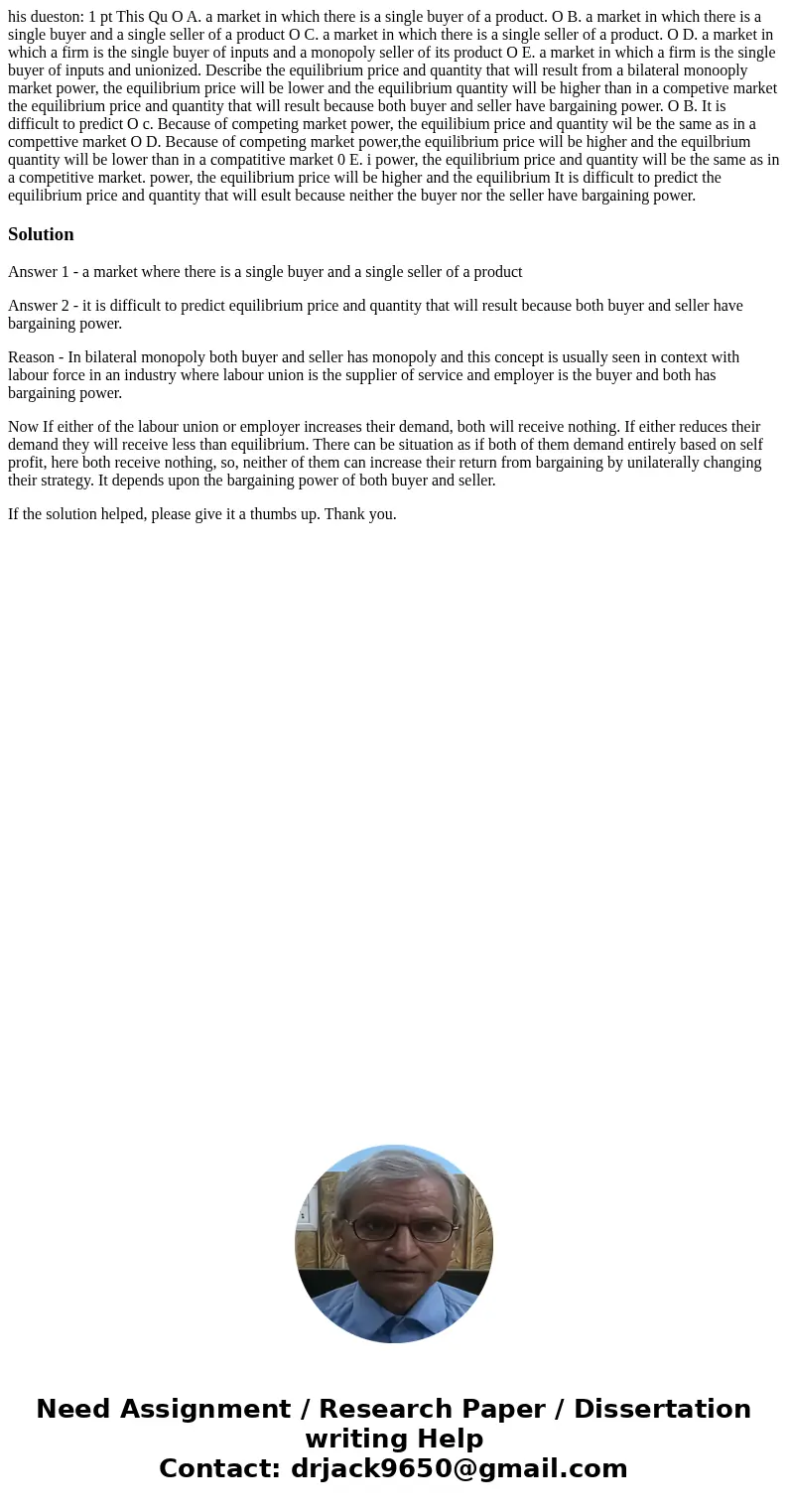his dueston: 1 pt This Qu O A. a market in which there is a single buyer of a product. O B. a market in which there is a single buyer and a single seller of a product O C. a market in which there is a single seller of a product. O D. a market in which a firm is the single buyer of inputs and a monopoly seller of its product O E. a market in which a firm is the single buyer of inputs and unionized. Describe the equilibrium price and quantity that will result from a bilateral monooply market power, the equilibrium price will be lower and the equilibrium quantity will be higher than in a competive market the equilibrium price and quantity that will result because both buyer and seller have bargaining power. O B. It is difficult to predict O c. Because of competing market power, the equilibium price and quantity wil be the same as in a compettive market O D. Because of competing market power,the equilibrium price will be higher and the equilbrium quantity will be lower than in a compatitive market 0 E. i power, the equilibrium price and quantity will be the same as in a competitive market. power, the equilibrium price will be higher and the equilibrium It is difficult to predict the equilibrium price and quantity that will esult because neither the buyer nor the seller have bargaining power.
Answer 1 - a market where there is a single buyer and a single seller of a product
Answer 2 - it is difficult to predict equilibrium price and quantity that will result because both buyer and seller have bargaining power.
Reason - In bilateral monopoly both buyer and seller has monopoly and this concept is usually seen in context with labour force in an industry where labour union is the supplier of service and employer is the buyer and both has bargaining power.
Now If either of the labour union or employer increases their demand, both will receive nothing. If either reduces their demand they will receive less than equilibrium. There can be situation as if both of them demand entirely based on self profit, here both receive nothing, so, neither of them can increase their return from bargaining by unilaterally changing their strategy. It depends upon the bargaining power of both buyer and seller.
If the solution helped, please give it a thumbs up. Thank you.

 Homework Sourse
Homework Sourse